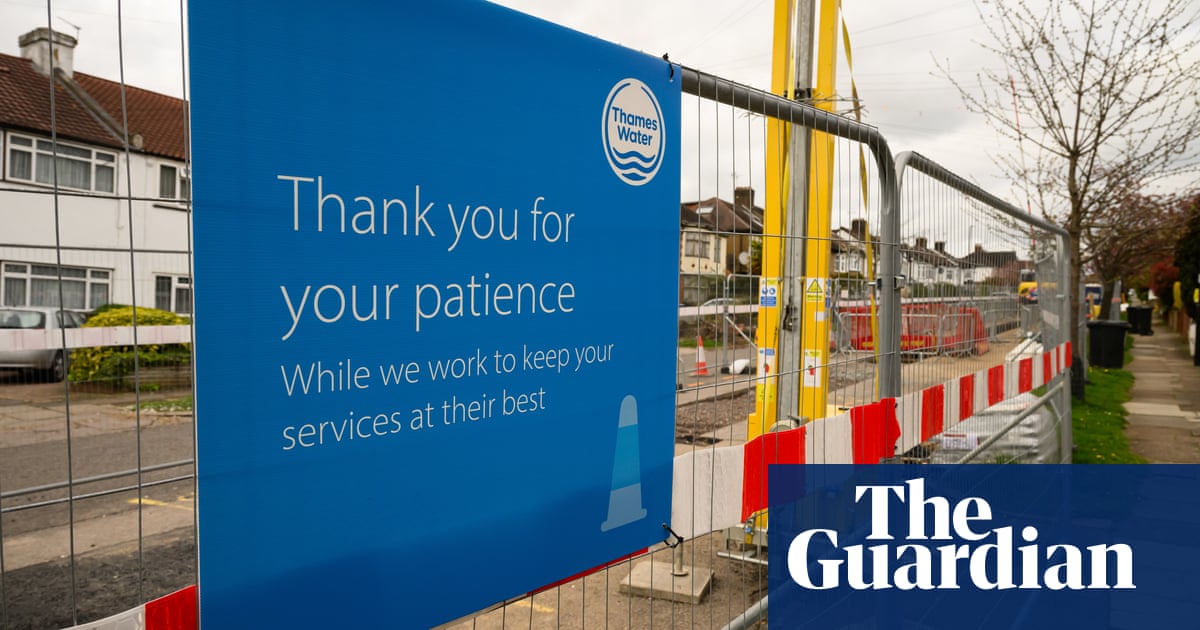
Thames Water has just six weeks to convince its regulator that it has a viable survival plan for its business, the Guardian can reveal.
While the company believes it has enough cash to survive for about 15 months, insiders and investors fear that it must move quickly to strike a deal with its watchdog to stave off insolvency.
The UK’s largest water monopoly must present a new turnaround strategy and business plan before 23 May – Ofwat’s final board meeting before it issues a verdict on how much water companies will be allowed to charge consumers.
Thames, which has 16 million customers across London and the Thames valley, has been thrown into crisis after its shareholders last month pulled the plug on a plan to inject £500m into the business, amid a deepening battle with the watchdog.
This has forced Thames’s holding company, Kemble Water Finance, to admit it will not be able to repay a £190m loan due by the end of April.
Thames holds cash reserves which should fund its operations for 15 months without a substantial increase in bills, but investors, including bondholders in the operating company, are understood to believe it may struggle to meet debt obligations if a deal is not struck by May.
Ofwat is understood to be sceptical that Thames’s current business plan for the next two years or its longer turnaround plan – aimed at revamping its management and infrastructure – are viable or fair on consumers.
Sources have claimed that Ofwat is concerned about bills rising without there being a clear strategy to overhaul how the business is managed, since this would risk the burden of poor business decisions being pushed on to customers.
Thames’s operating company, which is ringfenced by the regulator so it can continue even if Kemble collapses, is labouring under debts of almost £15bn, making it Britain’s most indebted water company. It was privatised in 1989 with no debt.
Investors in Thames backed out of providing £500m of emergency funding in March, after the regulator refused the company’s demands for a 40% increase in bills.
Investors, which include UK university pension scheme USS, Canadian investor Omers and China’s sovereign wealth fund, said Ofwat’s current position – to limit bill increases, levy fines and restrict payment of dividends – rendered the company “uninvestible”.
Ofwat reviews water companies’ business plans and holds a price review in order to set the amount the utility firms can raise their bills over the next five-year period.
Despite its rejection of Thames’s plan, it is understood that bills are still expected to rise by as much as 35%, on average, over the next five years.












